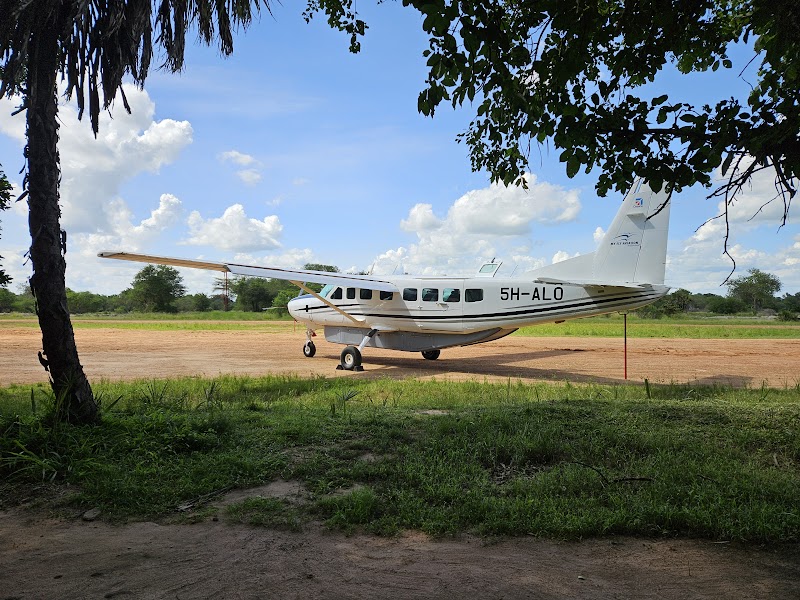
Experience the Vibrant Spirit of Pangani Cultural Festival in Tanzania
Immerse yourself in the lively celebration of Swahili culture at the Pangani Cultural Festival in Tanzania. From traditional music and dance to local arts and tantalizing cuisine, this event offers a practical yet thrilling way to experience the coastal heritage of Pangani.
Wear breathable, sturdy footwear
The festival involves a lot of walking on sandy and uneven surfaces in old town areas. Choose shoes that balance comfort with grip.
Carry water and sun protection
The coastal sun can be intense. Hydrate frequently and apply sunscreen to avoid heat exhaustion during daytime events.
Arrive early for best experience
Morning and late afternoon sessions are less crowded and cooler, offering better conditions for enjoying performances and photos.
Stay aware of your belongings
While Pangani is community-driven and friendly, keep your valuables secure in crowded festival areas.
Experience the Vibrant Spirit of Pangani Cultural Festival in Tanzania
The Pangani Cultural Festival is a burst of life along Tanzania’s eastern coastline, drawing visitors into a lively celebration of Swahili heritage and coastal traditions. Set against the backdrop of the Indian Ocean's steady blue pulse, this annual event turns the historic town of Pangani into a hub of music, dance, and arts that demand participation rather than mere observation.
Pangani, located about 110 kilometers north of Dar es Salaam, offers more than just festival excitement—it grants access to a slice of Tanzania’s cultural soul. The festival usually takes place over several days between July and September, which coincides with the region’s dry season, ensuring festival-goers can enjoy the outdoor performances and street parades without weather disruptions.
During the festival, you’ll find yourself surrounded by the rhythmic beats of traditional drums and the melodic calls of taarab musicians, whose songs trace the history and struggles of coastal communities. Costumed dancers enact ancestral stories, inviting onlookers to feel the pulse of a culture fiercely guarding its identity. Local artisans fill the stalls with handwoven fabrics, carved woods, and beaded jewelry, each piece telling its own story.
Beyond the performances, the festival encourages exploration around Pangani’s old town, where Arabic and African architectural influences stand as reminders of its role in centuries of trade and cultural exchange. Lean into your curiosity here—try the fresh seafood grilled at street food stalls or chat with locals eager to share the meanings behind their crafts.
Planning your visit means preparing for a festival that thrives within the town’s compact streets and coastal breeze. Expect to walk extensively over mostly flat, sandy terrain with occasional uneven patches in the older neighborhoods. Comfortable, breathable footwear is essential, as is staying hydrated under the coastal sun. Early arrivals are rewarded with cooler morning performances, and late afternoon offers golden light perfect for photography.
Safety is mostly straightforward; the festival is a community-focused event, but keeping belongings secure and carrying small amounts of cash is wise. Local guides can enhance your experience, pointing out hidden corners that resonate with history and sharing knowledge about Pangani’s environmental efforts to sustain its marine and coastal ecosystems.
The Pangani Cultural Festival is not just an event; it’s an engagement with a cultural force that remains robust and relevant—ready to enrich any traveler seeking both adventure and understanding. Whether you’re a cultural enthusiast or simply an adventurer craving a unique experience off the usual routes, this festival provides a practical and exhilarating taste of Tanzania’s coastal heritage.
Nearby Trips
All Adventures
Boat Charters
Water Activities
Adventures near Pangani, Tanzania
Discover the unique and memorable adventures that make Pangani, Tanzania special.
Frequently Asked Questions
When exactly is the Pangani Cultural Festival held?
The festival typically runs between July and September, coinciding with the dry season to allow outdoor celebrations free of rain interruptions.
What kinds of activities can I expect at the festival?
Expect traditional music and dance performances, street parades, craft markets featuring local artisans, storytelling sessions, and authentic coastal cuisine.
Is the festival suitable for children and families?
Yes, the festival is family-friendly with many interactive performances and safe communal spaces, though parents should supervise in crowded areas.
Are there any lesser-known viewpoints or cultural spots in Pangani to explore during the festival?
Nearby old forts and the river estuary provide tranquil spots away from crowds. The mangrove forests along the Pangani River give a closer look at local ecosystems and birdlife.
What local wildlife might I see during the festival?
Mangrove areas near Pangani host various bird species like kingfishers and herons. Coastal waters occasionally reveal dolphins and sea turtles, especially on clearer days.
How can I engage with the local community respectfully during the festival?
Participate openly but always ask permission before photographing individuals, support local vendors by purchasing goods, and follow guidelines set by festival organizers.
Recommended Gear
Comfortable walking shoes
Durable shoes with good traction for navigating sandy streets and old town pathways.
Lightweight sun hat
Protects your head and face from strong coastal sun during outdoor events.
Reusable water bottle
Keeps you hydrated throughout long festival days while reducing plastic waste.
Light rain jacket or poncho
Useful during occasional rains in transitional seasons, especially if exploring beyond the festival.
Local Insights
Hidden Gems
- "Pangani Old Fort ruins, a quiet spot with exceptional views of the ocean and town"
- "Mangrove boardwalks near the river estuary revealing rich birdlife"
- "Local beach areas known for calmer tides and fewer visitors"
Wildlife
- "Coastal birds like crab plovers and greater flamingos during migration"
- "Occasional sightings of sea turtles nesting along nearby beaches"
- "Diverse marine life visible during boat trips along the coast"
History
"Pangani served as a critical trade port between East Africa, Arabia, and the Indian subcontinent, influencing the Swahili culture and architecture still evident today."
